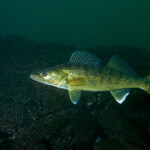Offer on table to restore US Pacific tuna treaty
The Pacific Island Forum Fisheries Agency (FFA) has sent an offer letter to the U.S. State Department that may pave the way for the U.S. tuna fleet to resume operations in the Central and South Pacific.
The FFA, composed of 17 Pacific Island nations, has offered to refund 1,996 fishing days held by the U.S. fleet as part of the U.S. Tuna Treaty deal for 2016. The U.S. withdrew from the treaty on 29 January after the FFA demanded that American tuna fishing companies pay for the fishing days they had previously agreed to purchase as part of the treaty. The fishing companies have cited low tuna costs and the agreement’s inflexibility as inhibiting factors to paying its bill.
“The outcome that we put to the United States is one that we hope will meet their request when they asked for a reduction of the number of days under the treaty for this year, and allow them to make a decision to go forward with these terms as quickly as possible,” FFA Director-General James Movick told the Australia Broadcasting Corporation on 10 February. “In other words we tried to be as accommodative as possible, recognizing that we do want to enable the fleet to get out back fishing as soon as possible.”
The total of 1,996 is four less days than was requested by the State Department in its role as lead negotiator between the FFA and the American tuna fishing companies who had previously agreed to purchase the fishing days as part of the treaty. Movick said he expected the U.S. to agree to the deal.
“We’ve structured it in a way that we think will enable the U.S. to make a fairly quick and positive decision,” he told Australia Broadcasting Corporation. “It would be very unfortunate if they are unable to respond quickly and for us to reach agreement quickly on this package because the available time for other meetings to bring all the parties together is very limited and so there would be further delays. So we looked at that and we’ve tried to structure a proposal that the U.S. can agree to quickly and we certainly hope that they will do so.”
In response to inquiries from SeafoodSource.com, a representative from the U.S. State Department said it was in contact with the FFA and was actively negotiating a deal.
“We are communicating with Pacific Island party representatives regarding proposed revisions in terms and are eager to continue working with them to help facilitate a resolution,” the State Department official said.
The State Department finds itself in the awkward position of lead negotiator and middleman between the FFA and American fishing companies due to its inclusion of millions of dollars of aid to the Pacific Island nations into the treaty, which primarily covers fishing rights. For 2016, the U.S. is paying USD 21 million (EUR 18.5 million) to the FFA while boat owners agreed to pay USD 69 million (EUR 60.8 million) in exchange for 45,000 fishing days – the equivalent of USD 10,000 (EUR 8,820) per fishing day for each boat.
J. Douglas Hines, the largest shareholder of The Global Companies and the executive director of South Pacific Tuna Corporation, which owns and operates 14 vessels in the Pacific tuna fishery, said his companies were losing USD 100,000 (EUR 88,200) each day their boats were stuck in port.
“I believe it's fixable, but highly urgent,” Hines said of the treaty. “The longer the industry has to wait, the harder it will be to get back up and running.”
Hines has offered to pay his company’s share of the 2016 fishing dues remaining to be paid to the FFA and criticized competitors Tri Marine and Dongwon Industries – the owner of StarKist – for not paying their dues.
“If a company makes a commitment, they should honor their commitment,” Hines said.
Neither Tri Marine nor Dongwon Industries responded to messages asking for comment on their decisions not to pay and their stance on the State Department’s ongoing negotiations.
Hines said that future negotiations of the treaty should change the fishing agreement to include a “limited number of multilateral days attached to the treaty with U.S. AID support.”
“Then individual vessels could then negotiate separate bilaterals in the specific areas or nations that fit their needs,” Hines said.
In his interview with the Australia Broadcasting Corporation, the FFA’s Movick suggested his organization may be open to change the structure of the treaty after a short-term fix is found for the 2016 fishing season.
“Our leaders and Ministers have made clear that they would like to see the continuation of a relationship with the United States in the fishery sector, under the Treaty, but certainly we all recognize that the current Treaty structure needs to change to accommodate the new circumstances in the region,” Movick said.






Share